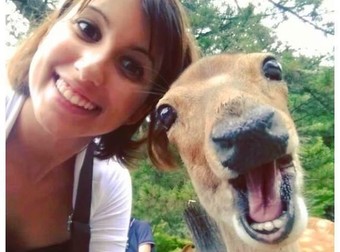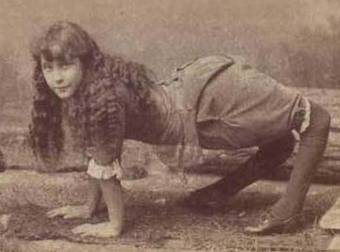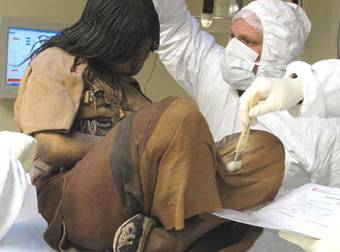The online magazine Vice and the creators of the movie Dawn of the Planet of the Apes (out now on Blu-Ray and DVD) teamed up to produce a short documentary about a real life Planet of the Apes in Monrovia, Liberia. The location in question is ominously referred to as Monkey Island. Here, the chimpanzees of a nearby laboratory live by themselves and are extraordinarily hostile to people of the nearby village. They’re especially awful to foreign strangers.
When journalist Kaj Larsen asks some of the Monrovia locals to take him to Monkey Island, they were adamant that it was a bad idea.
Nonetheless, they decided to take Larsen out in one of their canoes.
The island is not very welcoming.
As they approached the bank, a large male chimpanzee came barreling towards them. They escaped back into the water with the chimpanzee drumming on the bow of the boat.
Lucky for them, chimps do not like water. The alpha could only follow them for a few feet before relenting back to the shore.
The crew returned to the bank, this time offering as a totem of peace: a basket of fruit. They seemed fairly content with this.
One chimp was still not buying into it, splashing water at the host and the camera men.
Larsen quickly discovered the chimp had a sweet tooth.
The chimps used to call the nearby facility of The Liberian Institute of Biomedical Research (Vilab II) home. They were once experimented on there, as part of research attempting to find ways to treat Hepatitis.
At the facility, chimps were injected with different strains of Hepatitis. This is because they are the only other animals besides human that can be infected.
1989 was the start of two bloody back-to-back civil wars in Liberia. The director of Vilab II began protecting the wives and children of soldiers who died.
Thinking the expatriates were working for the opposition, one military group killed the lab director Betsy’s husband Brian, who also worked for the lab.
Ultimately, it wasn’t war that killed the Vilab II program. Anti-testing videos and animal rights programs shut down the lab.
The lab made immense strides in screening for Hepatitis B and even a vaccine for Hepatitis C. Betsy says she agrees with the animal rights groups on the fact that chimpanzees should not be used for testing.
Her team brought the chimps to live on the island on their own. A staff of trained Liberians feed them and provide medical aide.
The chimps know and trust this team, almost as if they were a member of their own family.
This is a different greeting than the one Larson experienced.
Betsy says that the chimps thrive on the island. Some of the oldest chimps have lived for over 30 years.
Watch the entire documentary below.
(Via: CNET)
It’s a good idea to only approach wild animals with professionals trained in dealing with them. You should also know that not all island monkeys look like this:
 share
share
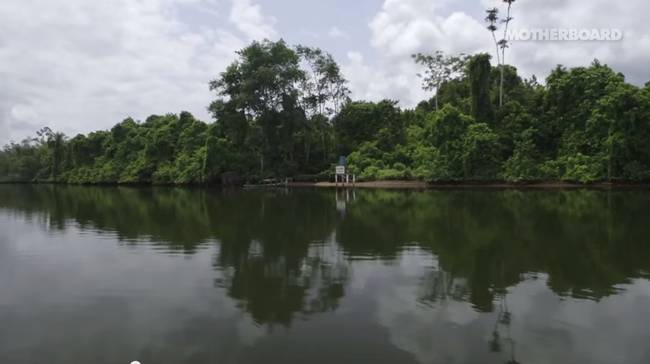 share
share
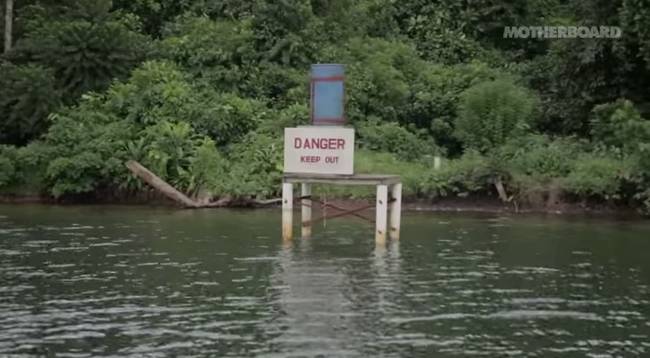 share
share
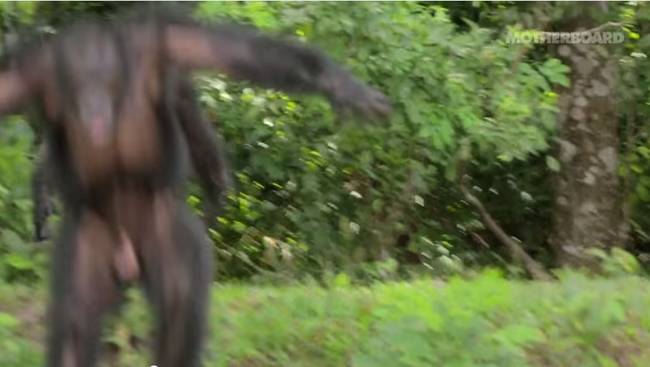 share
share
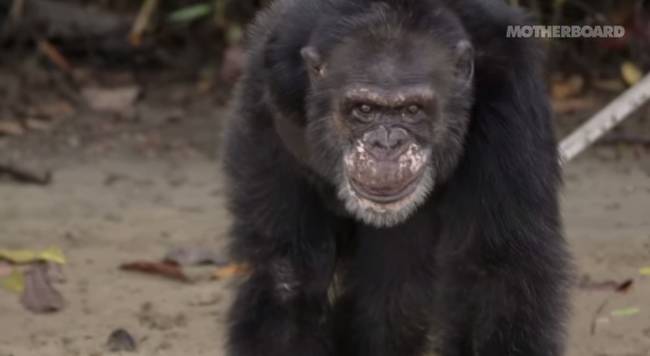 share
share
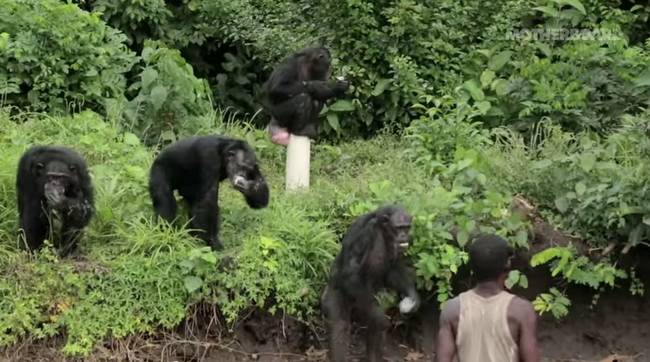 share
share
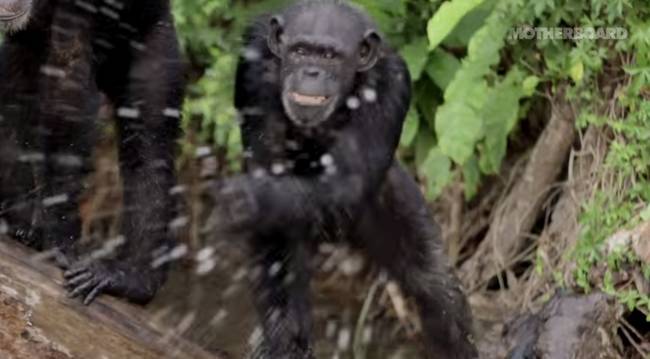 share
share
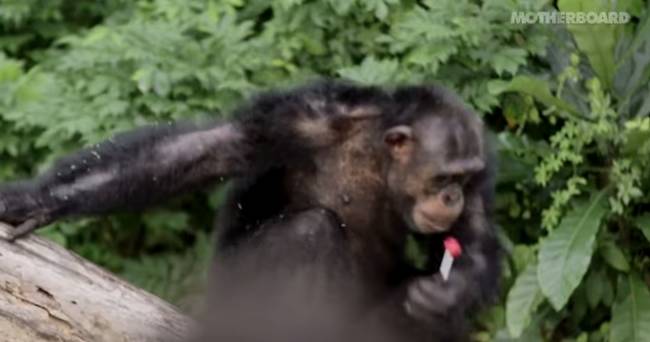 share
share
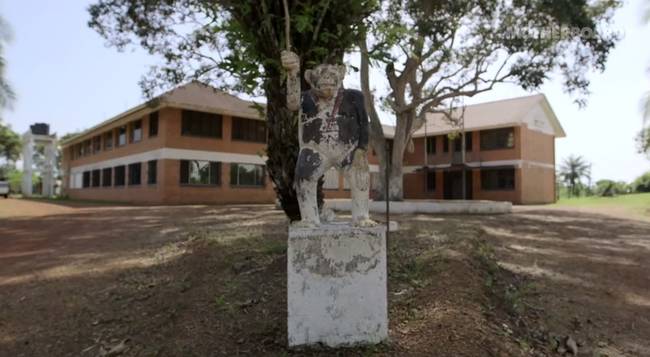 share
share
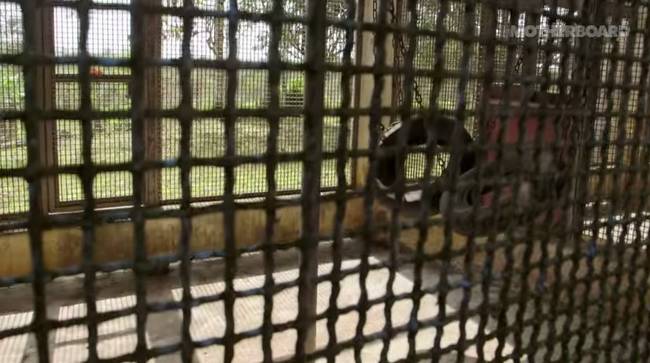 share
share
 share
share
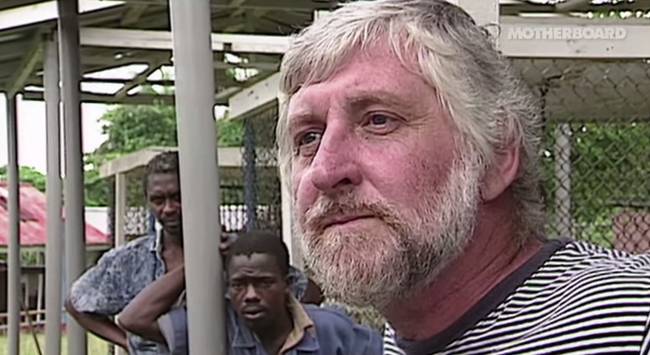 share
share
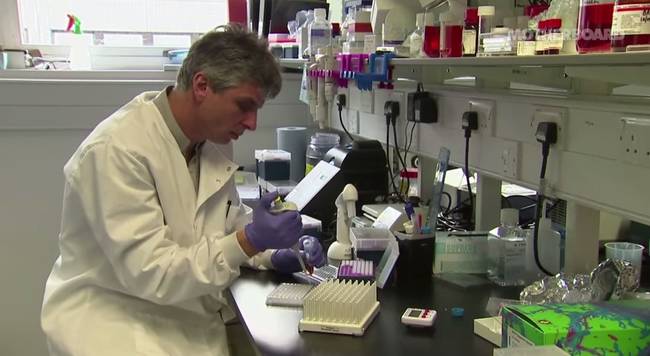 share
share
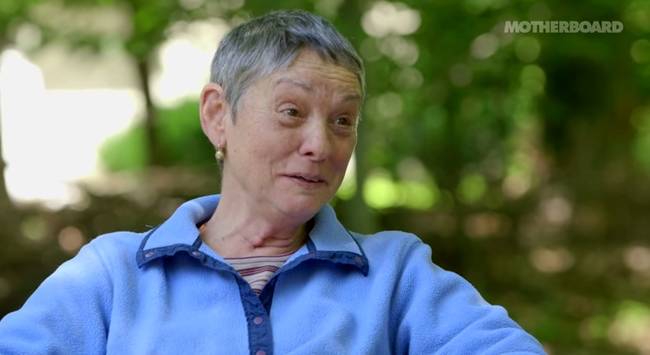 share
share
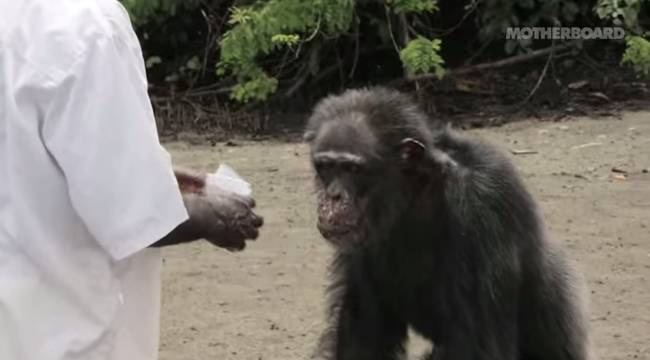 share
share
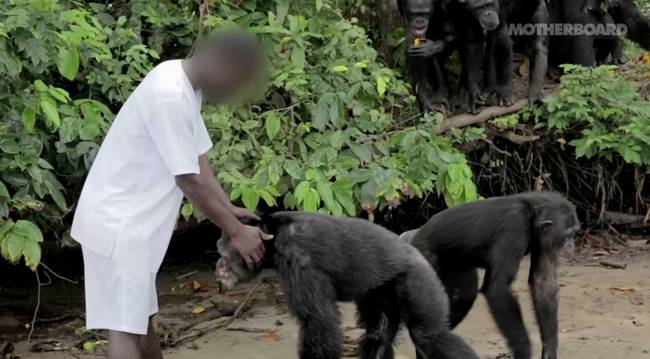 share
share
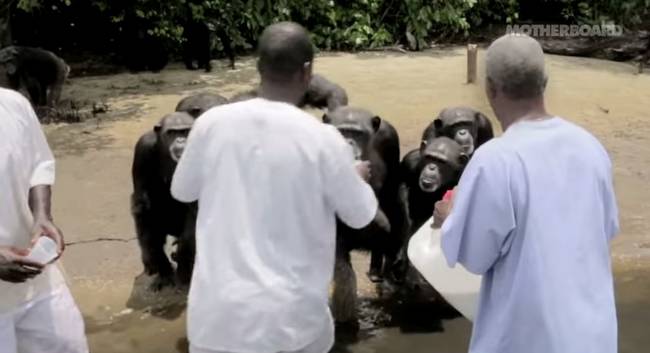 share
share
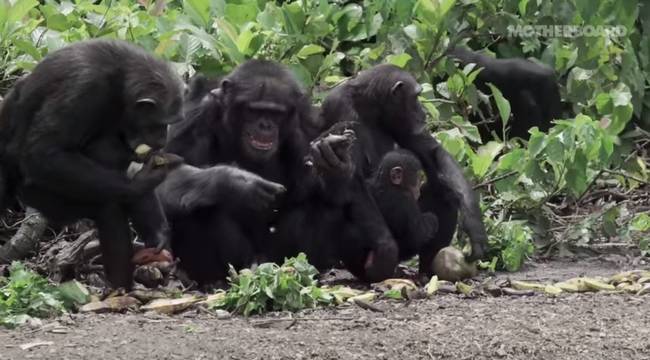 share
share
 share
share

